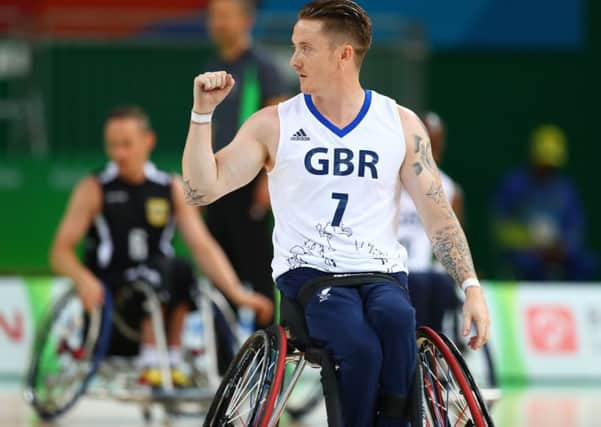Terry Bywater calls for more recognition as Great Britain eye Paralympic glory


Raised in Dormanstown, North Yorkshire, Bywater took up wheelchair basketball in his early teens, after starting playing at an open day at leisure centre in Middlesbrough.
Having “absolutely fallen in love with” the sport, as he puts it, Bywater’s stock grew rapidly.
Advertisement
Hide AdAdvertisement
Hide AdBy the age of 14, he was travelling with the Great Britain junior team to the world championships in Canada.
It was a team he would go on to captain, just as he has done with the senior side.
In what Bywater calls ‘a dream come true’, that side have just claimed the European Championships crown in Poland, going undefeated in the tournament and crushing Spain 75-52 in the final, and indoingso, qualifying for next year’s Tokyo Paralympics.
What is even more remarkable is that GB now hold the European and World Championship titles concurrently, and have made the last five international tournament finals in a row – winning four of them.
Advertisement
Hide AdAdvertisement
Hide AdNow, after such remarkable success, Bywater is calling for wheelchair basketball to get more recognition.
“We’re slowly, slowly getting bigger – but what this team, what British wheelchair basketball has achieved over the last eight-to-ten years is remarkable,” says Bywater, a Paralympic bronze medallist with GB in Athens 2004, Beijing 2008 and Rio 2016.
“I think we’ve got to get the sport out there.
“We’ve got to get it out there in the media more, on social media more, and get more people involved.”
Ending his career with a gold medal to join his three Paralympic bronze medals – in the two Games where he didn’t medal he was part of the GB team that finished fourth – would certainly seal the legacy of one of Britain’s most decorated wheelchair basketball players, and would help grow the sport in the national conscience.
Advertisement
Hide AdAdvertisement
Hide AdBut Bywater accepts that in winning the worlds and then the Europeans, Great Britain have put more pressure on themselves, meaning they head to Tokyo next summer with a target on their backs.
That being said, Bywater is confident – he believes this team is the best he’s ever played with talent-wise, and points to the ‘huge belief’ GB have in their ability to win.
“I think we’re in a situation now where other teams are fearful of us, before we all had them in the back of our minds – teams like Spain, Canada, America, I think now it’s changed – teams are going to be scared of us.”
Like most athletes, Bywater can point to longevity as one factor in his success.
Advertisement
Hide AdAdvertisement
Hide Ad“I’ve represented my country for 20 years now, and I’ve not missed a tournament in 20 years.
“I’ve been to five Paralympic Games, five World Championships, and ten Europeans,” continues Bywater, 36.
“I’ve had an amazing career and hopefully I can finish it off in Tokyo with a gold.”
Another factor in that run is the support he has received.
Firstly there is the funding from UK Sport, which is bigger than the able-bodied basketball programme receives, and means Bywater and his team-mates get to train in state-of-the-art facilities at the English Institute of Sport in Sheffield where the squad is based.
Advertisement
Hide AdAdvertisement
Hide AdSecondly, his family. Wife, Jodie is “absolutely unbelievable”, and Bywater describes his son, Benjamin, as his “number one fan”.
“When the going gets tough, that’s [who] I think about,” says Bywater of the people closest to him.
“I think about them both and I’m doing it for them at the end of the day.”